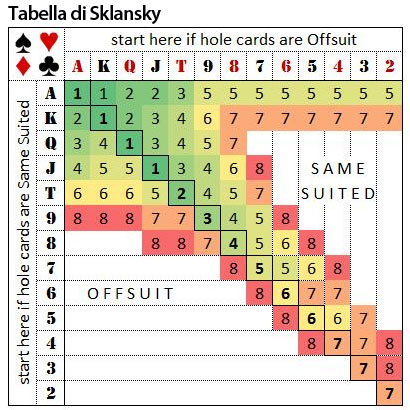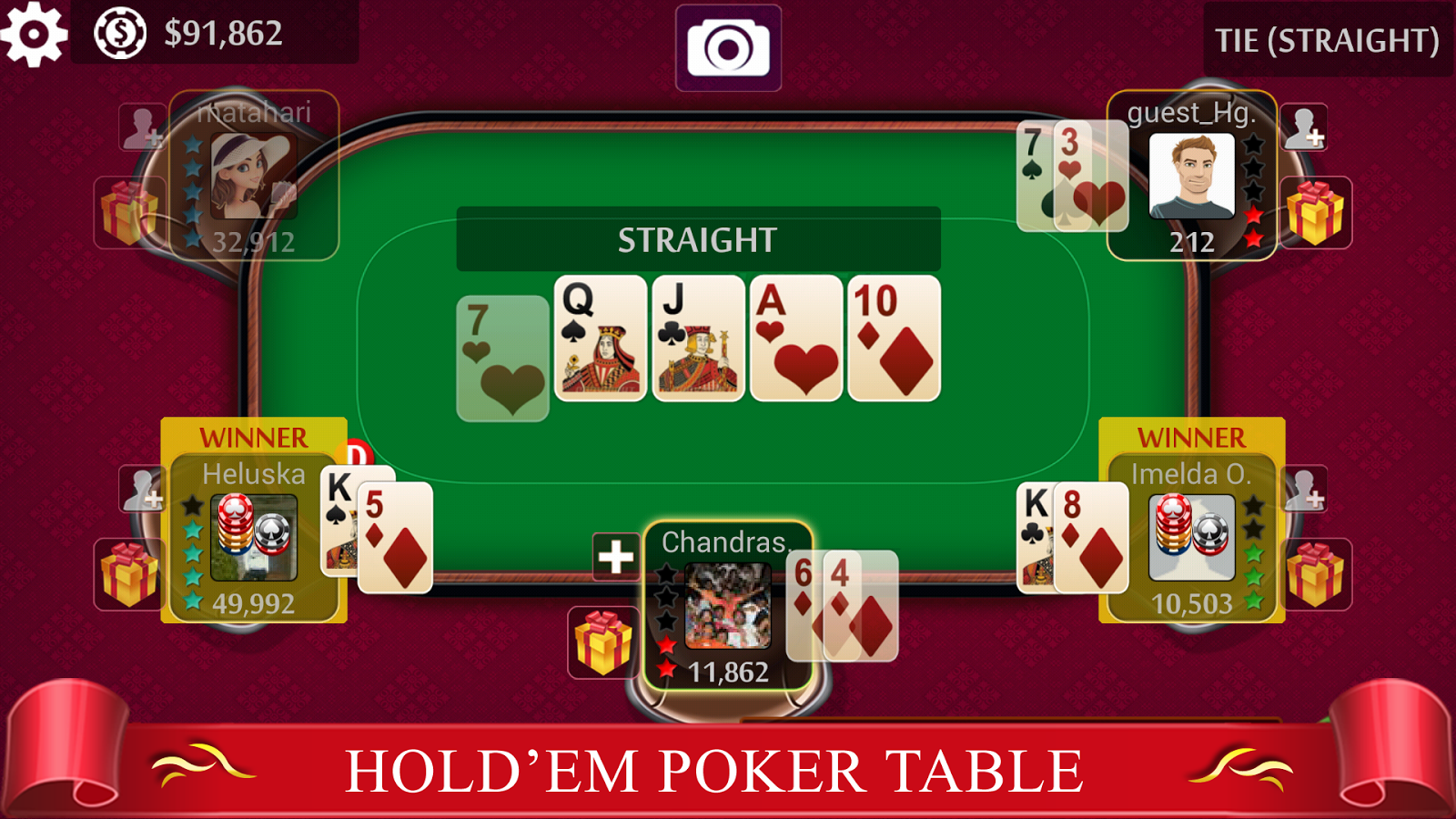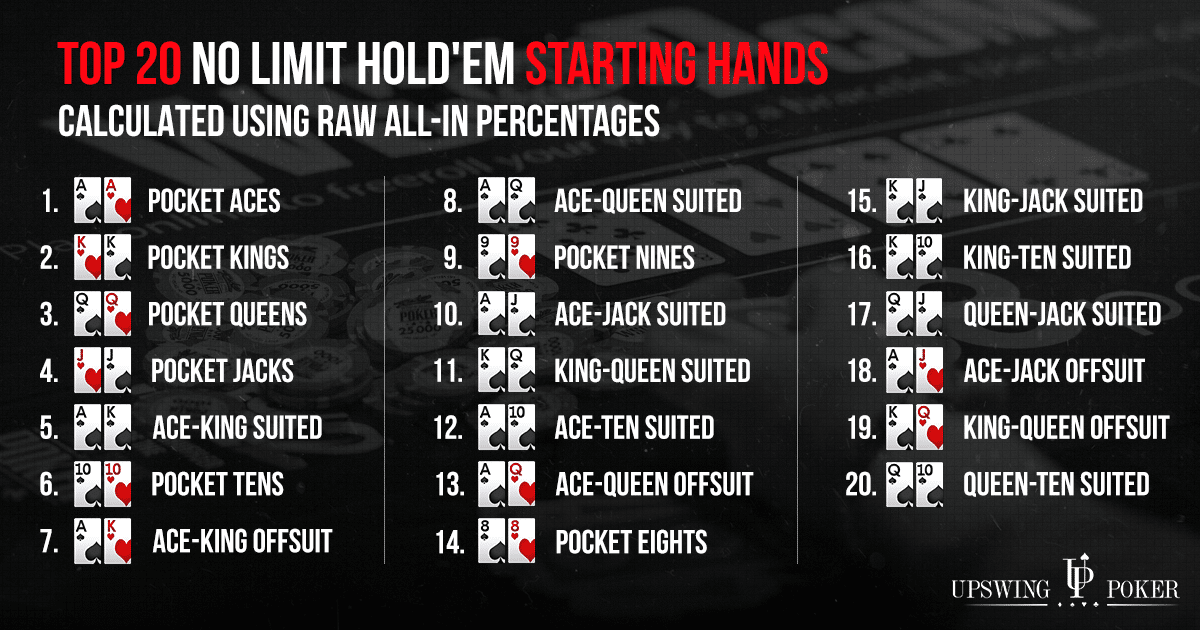Punteggio Poker Texas Hold
- Punteggi Poker Texas Holdem
- Punteggio Del Poker Texas Hold'em
- Punteggio Poker Texas Holdem
- Scala Punteggi Poker Texas Hold'em
- Poker Texas Hold'em Punteggio Carte
Texas Hold’em poker is everywhere these days — on TV, online, and in clubs and casinos. Before you sit down to a game of Texas Hold ’em, make sure you’re in good shape to be successful — take care of non-poker issues and check your physical, mental, and financial status. During the game, you need to understand basic odds and playable hands, as well as how to bluff successfully and follow proper poker etiquette. Texas Hold ‘Em also has its own abbreviations for online play.
Poker Odds - Calculating Hand Odds In Texas Hold'em Poker & Charts Learning how to properly count your outs and calculate poker odds is a fundamental requirement of Texas Hold'em. While the math used to calculate odds might sound scary and over the head of a new player, it really isn't as hard as it looks. The top 5 strategies for novice poker players, and intermediate-level poker players include the following: Opening Hands, Bet Sizing, Limping, Folding, and Positioning. Once you’ve mastered these 5 Texas Hold’em poker strategies, you’ll be able to incorporate many other strategies into your overall game plan. 1.7 Figuring out correct Hold’em poker odds without much math; 1.8 Preflop Texas Hold’em Odds; 1.9 Odds of connecting with the Flop in Hold’em; 1.10 Odds On the Flop in Texas Hold’em. 1.10.1 Outs; 1.10.2 Straight and Flush Draw Odds; 1.10.3 On the flop, when you have: 1.11 Odds of hitting a hand by the river from the flop. Texas Hold'Em is a competitive poker game played in several rounds where players bet to advance from one stage to the next. It is a game of skill, strategy and, like all card games, luck. The objective of Texas Hold'Em is very clear: have the best five-card poker hand at the end of the game.
Playable Texas Hold’em Hands
Texas Hold’em is a game of strategy, like any poker game, but where you’re sitting in relation to the action becomes part of your strategy when playing Hold’em. If you bet early, you generally need better cards than you do if you’re one of the blinds. The following table offers sound advice on what hands are playable when you’re sitting in different positions.
Questions to Ask Yourself before You Play Texas Hold’em
Whether you’re playing Texas Hold’em for fun or money — make that whether you’re playing for high stakes or low stakes — make sure you’re in a position mentally, physically, and financially to enjoy the game and make the most of your chances. Ask yourself these questions before you sit down to a game:
What is the purpose of my playing this session? Whether it’s to learn more, win money, or just hang with friends for a good time, make sure you know why you’re there and that you’re doing everything you can to accomplish that goal.
If I were to play an opponent who’s exactly the same as a well-rested, un-stressed version of me, would that person have an advantage? If the answer is “yes,” hold off on playing until you’re in a better psychological and physical state.
Can my bankroll handle this level of play? If not, play a lower level.
Are there any distractions in my life that I need to get rid of before I play? Pay your rent, walk your dog, call your significant other — whatever it is, get it out of your head so you can focus.
Do I know if the house I’m playing in has any bonuses for players such as bad beat jackpots, high hands, free food and/or drinks for players, or freeroll tournaments? If not, ask a floorperson before you start playing and find out about the details of how you can qualify.
Is there an aggressive person at the table I’ll be playing at? If so, try to get yourself seated to his left so you see the raises before your action and not after.
What do I know about the people sitting at the table? Whatever it is, use it to your advantage.
Rough Odds for Texas Hold’em
Playing poker is about playing the odds. The following list gives the odds for outcomes in Texas Hold’em hands. When you realize how heavily the odds are stacked against you, you may want to rethink going all-in before the flop with two suited cards. Use the odds to your advantage:
1 percent (1-in-100): Percentage of time that no player holds an Ace or a King at a table in a 10-handed game
1 percent (1-in-100): Percentage of time that if you hold two suited cards, you’ll flop a flush
6 percent (about 1-in-20): Percentage of time that five community cards will give pocket suited cards a flush
6 percent (about 1-in-20): Percentage of time that you’ll be dealt a pocket pair
8 percent (about 1-in-12): Percentage of time that you’ll hit at least trips after having a pair on the flop
12 percent (about 1-in-8): Percentage of time that you’ll flop trips if holding a pocket pair
12 percent (about 1-in-8): Percentage of time that two more cards will flop in the same suit as a suited pocket pair
19 percent (about 1-in-5): Percentage of time that the five community cards will at least trip your pocket pair
32 percent (about 1-in-3): Percentage of time that you’ll pair one of your cards on the flop (with no pocket pair)
33 percent (about 1-in-3): Percentage of time that you’ll make a full house or better after having trips on the flop
35 percent (about 1-in-3): Percentage of time that you’ll make a flush on the turn or river if you have four cards to a flush after the flop
Texas Hold’em Bluffing Tips
What makes any poker game exciting, and Texas Hold’em is certainly no exception, is that players can bluff at any point. Sometimes half the fun of a game is seeing whether you can successfully bluff an opponent out of some money. But, even as you’re misleading your opponents, make sure you bluff in the right circumstances. Heed these bluffing tips:
Only bluff where it makes a difference to your standing — either in a tournament or to your stack of chips.
Be careful bluffing someone considerably worse than you are. He may call just to see what you have, or on some probabilistically low draw when he already has you beaten anyway.
Bluff in situations where the board hints at the great hand you do not have: straights and flushes being hinted at by the board, the turn of an Ace, and so on.
Don’t try to bluff players who only play the most solid of hands if they’re still in the pot.
Don’t bluff people who are extremely likely to call.
Do bluff the timid or people who are likely to fold.
Remember that it’s easier to bluff in No-Limit than Limit because the bets (both implied and real) are bigger.
Poker Etiquette for Texas Hold’em
The etiquette tips in the following list apply to Texas Hold’em and to any other poker game. Sure, you can have fun while you play poker, but you can have all the fun you want without being impolite to the other players or the dealer. Basic poker etiquette includes these tips:
Always play in turn.
Be aware of when it’s your turn to post the blinds and do so promptly.
Any time there is a discrepancy at the table, talk to the dealer — not the other players — about it. If you’re not able to get satisfaction from the dealer, ask for a floorperson. Talking with other players about the problem you perceive may generate ill will among people who have no authority in the situation in the first place.
Place your bets in front of you. Do not splash them into the pot.
Do not show your hand to other players at the table while a hand is in progress.
Tell the dealer when you intend to raise. In No-Limit, gather the amount that you’re going to raise and either announce the total, or move it all forward with one motion. This prevents being called on a “string raise.”
Don’t forget to tip your dealer. Dealers work for minimum wage and rely on tips for their livelihood.
Online Poker Abbreviations for Texas Hold’em
Playing online poker in general, and Texas Hold’em in particular, is a very popular pastime. When you’re online, you may encounter abbreviations specific to the world of poker. To understand what other players are saying, get familiar with these online abbreviations:
| Abbreviation | What It Means | Abbreviation | What It Means |
|---|---|---|---|
| 86 | To remove or ban | ne1 | Anyone |
| brb | Be right back | nh | Nice hand |
| gc/nc | Slightly sarcastic phrase meaning good catch/nice catch | gg | Good game |
| lol | Laughing out loud | gl | Good luck |
| nl | No-Limit | ty | Thank you |
| n1 | Nice one | 🙂 | Smiley face (view sideways) |
Texas Holdem is the most popular variant of poker and the one we recommend beginners start with. Once you have a good understanding of Texas Holdem, other poker variants are quite similar and will be easier to learn.

The object of Texas Hold em poker is to create the best five-card hand using seven available cards. Each player is dealt 2 cards which only they can see and use. There are then 5 cards dealt to the middle of the table which are community cards which everybody can see and use.
Dealer Button
Once the game starts an imaginary dealer is assigned. Obviously with online poker the computer does all the dealing automatically but this nominal dealer is important as it indicates who posts the compulsory bets (known as blinds) before each hand and it also indicates who is first to act in each betting round.
The current dealer is indicated by a disc marked with a “D” known as the dealer button. At the end of each hand the dealer button moves along to the next player to the left of the current dealer and continues to move clockwise after each hand is finished.
The Blinds

In Texas Holdem there are two compulsory bets that are made before the start of each hand. These are known as the “Small blind” and the “Big blind” and ensures that there are chips to be won in every hand.
The player to the immediate left of the dealer places the small blind and the player to the left of the small blind posts the big blind.
In No Limit games the size of the blinds is set by the stakes of the table you are at. So for example at a $1 / $2 table the small blind would be $1 and the big blind would be $2.
Before The Flop – First Betting Round
Once the blinds have been posted, two cards are dealt face down to each player at the table, these are known as “hole cards”. Only the individual player can see these cards.
At this point the first betting round begins and each player must make a decision on how to act based on the strength of their hole cards. They have the following options:
- Fold – Throw the cards away and not play in this hand
- Call – Call the size of the big blind or highest bet if another player has raised, and take part in the hand
- Raise – Make a larger bet than the current bet (or big blind). Any other player who wants to continue would then have to call your increased bet in order to carry on. A raise must be at least an increase the size of the Big Blind so the minimum raise would be 2 times the big blind amount. In No Limit there is no maximum to your raise, It can be your whole stack if you wish.
Action always goes clockwise on a table. On the first betting round, the first person to act is the player to the left of the big blind. Each player acts in turn until all the players have acted at the table, and the amount put into the pot by each player remaining in the hand is equal.
The Flop – Second Betting Round
After the first betting round has finished, the dealer places 3 cards face up in the middle of the table – this is known as the “Flop”. The cards in the middle of the table are called “Community Cards” as they are shared by all the players towards making their final hands.
Players can now see 5 cards (2 hole cards + 3 community cards) out of the 7 cards to come and should have good idea of how their hand is developing. At this point the second betting round begins.

In this and all subsequent betting rounds, the action starts with the first player remaining in the hand to the left of the dealer. This player can either:
- Check – not bet anything
- Bet – place a bet which the other players must at least call to continue in the hand. The minimum bet is the size of the big blind.
If everyone checks then this betting round ends with no-one betting. As soon as someone bets then the other players can either:
Punteggi Poker Texas Holdem
- Fold – drop out the hand
- Call – call the bet that has been made
- Raise – increase the bet that has been made which the other players must then call to continue in the hand.
As in the previous betting round, the plays continues clockwise around the table until all players have called, checked or folded and the amount placed in the pot by each player still in the hand is equal.
The Turn
After the second betting round, the dealer places a 4th community card, face up on the table – this is called the “Turn card”, it is sometimes also referred to as “Fourth Street”.
After the Turn there is a third betting round, which operates in exactly the same way as the previous betting round.
The River
After the third betting round, the dealer places the 5th and final community card face up on the table – this is called the “River card”.

After the River the fourth and final betting round takes place in the same way as the previous round.
Punteggio Del Poker Texas Hold'em
The Showdown
After the final round of betting, each player still left in the hand can use any combination of the 2 hole cards in their hands and the 5 community cards on the table to produce the best 5 card hand.
The player with the highest ranking hand wins the pot. If two or more players have the same value hand then the pot is split between them equally.
If you have not already learnt which hand is better than another then please look at our Poker Hand Ranking Guide.
Next Hand
Once the hand has finished and the pot has been awarded to the winning player, the game moves onto the next hand.
Punteggio Poker Texas Holdem
The dealer button moves to the next player on the left of the current dealer, the cards are shuffled, the blinds are posted by the next two players and the cards are dealt again.
Scala Punteggi Poker Texas Hold'em
Where to Play Texas Holdem?
Poker Texas Hold'em Punteggio Carte
We recommend 888 Poker for a great place to play Texas Holdem. To find out more about them see our 888 Poker Review or to see alternate rooms to play Texas Holdem then see the Professor's reviews in our Poker Reviews section.